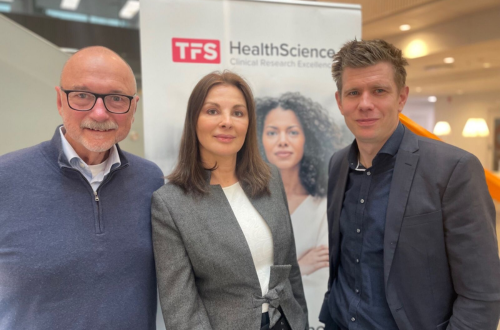Successful Patient Engagement Strategies in Primary Prevention of Cutaneous Squamous Cell Carcinoma
Cutaneous squamous cell carcinoma (CSCC) is the second most common nonmelanoma cancer after basal cell carcinoma, accounting for approximately 20 percent of all skin cancers. In line with the prolonged life span and increased ultraviolet light exposure, its incidence continues to rise worldwide. Both the diagnosis and treatment of CSCC impose a high burden on healthcare systems, which drives the need for effective prevention strategies. Primary CSCC prevention aims to reduce exposure to known risk factors by using behavioral and environmental interventions, such as decreasing sun exposure.
TFS HealthScience strives to be a leader in the patient-centric approach to primary CSCC prevention, and we recently shared our experience during the Medicon Village, home to TFS headquarters, Science for Breakfast event. We presented the study design using a patient-centric approach, including the digital patient app connected to the wearable device: a UV sensor bracelet. This solution allowed a high-risk patient group to actively control their sun exposure. Additionally, the app permitted more frequent contact with the physician and gave access to educational content, including health tips. As a result, patient awareness about the risk factors and engagement with the project increased by 30 percent compared to studies with the conventional design.
With patient engagement becoming increasingly important in clinical trials, TFS is committed to utilizing the newest technology solutions to support the oncology community, sponsors, and physicians to make the right decisions to support a truly patient-centric approach to research. By involving patients more actively in their care, we can not only reduce the risk of cancer but also improve the quality of data collected and, ultimately, the success of the trial.
“There is a misconception that patient engagement in research is a box that sponsors should tick simply because it’s the right thing to do. In fact, patient insights bring sponsors many tangible benefits across the study lifecycle, from faster timelines to improved impact and dissemination. Science for Breakfast was an opportunity for TFS to share those benefits, as well as practical tools and tips for bringing engagement to life throughout a study.”
– Edyta Korzuch
Senior Director,
Oncology & Hematology
Learn more about our related services and resources:
Contact Us:
Contact us today and join a team that cares about you.
